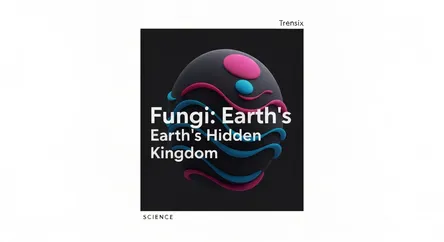Science
Fungi: Earth's Hidden Kingdom
What is it?
Fungi are a unique kingdom of organisms, separate from plants and animals, that includes everything from mushrooms and molds to yeasts. Unlike plants, fungi don't photosynthesize; they absorb nutrients from their surroundings. As nature's primary decomposers, they break down dead organic matter, recycling vital nutrients back into the ecosystem. The main body of most fungi is a vast, hidden network of thread-like structures called mycelium, which is essential for nutrient absorption and growth.
Why is it trending?
Fungi are experiencing a cultural and scientific renaissance. Researchers are exploring mycelium as a sustainable material for everything from packaging to textiles. In medicine, there is renewed interest in the therapeutic potential of compounds like psilocybin from "magic mushrooms." The culinary world continues to embrace diverse gourmet mushrooms, and science is highlighting the crucial role fungi play in gut health, bioremediation (cleaning up pollutants), and creating novel biopesticides for agriculture.
How does it affect people?
Fungi impact human life daily. They are essential for producing foods like bread, cheese, and beer through yeast fermentation and have been a source of revolutionary medicines like penicillin. However, some fungi can be detrimental, causing diseases in humans and crops or spoiling food. On a global scale, their decomposition role is indispensable for soil fertility, underpinning all agriculture and forestry. This hidden kingdom is a powerful force that both sustains and sometimes threatens human well-being.
